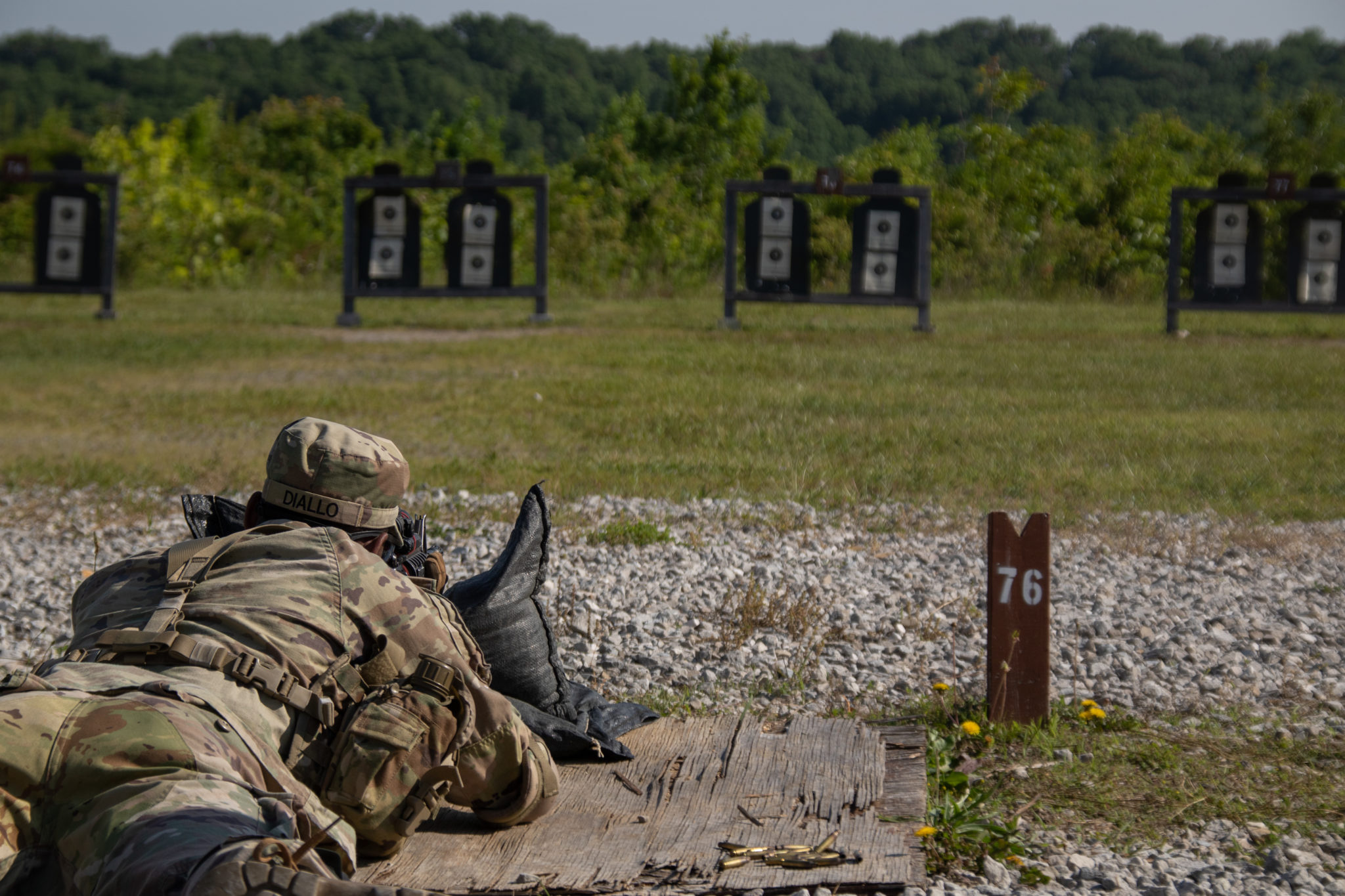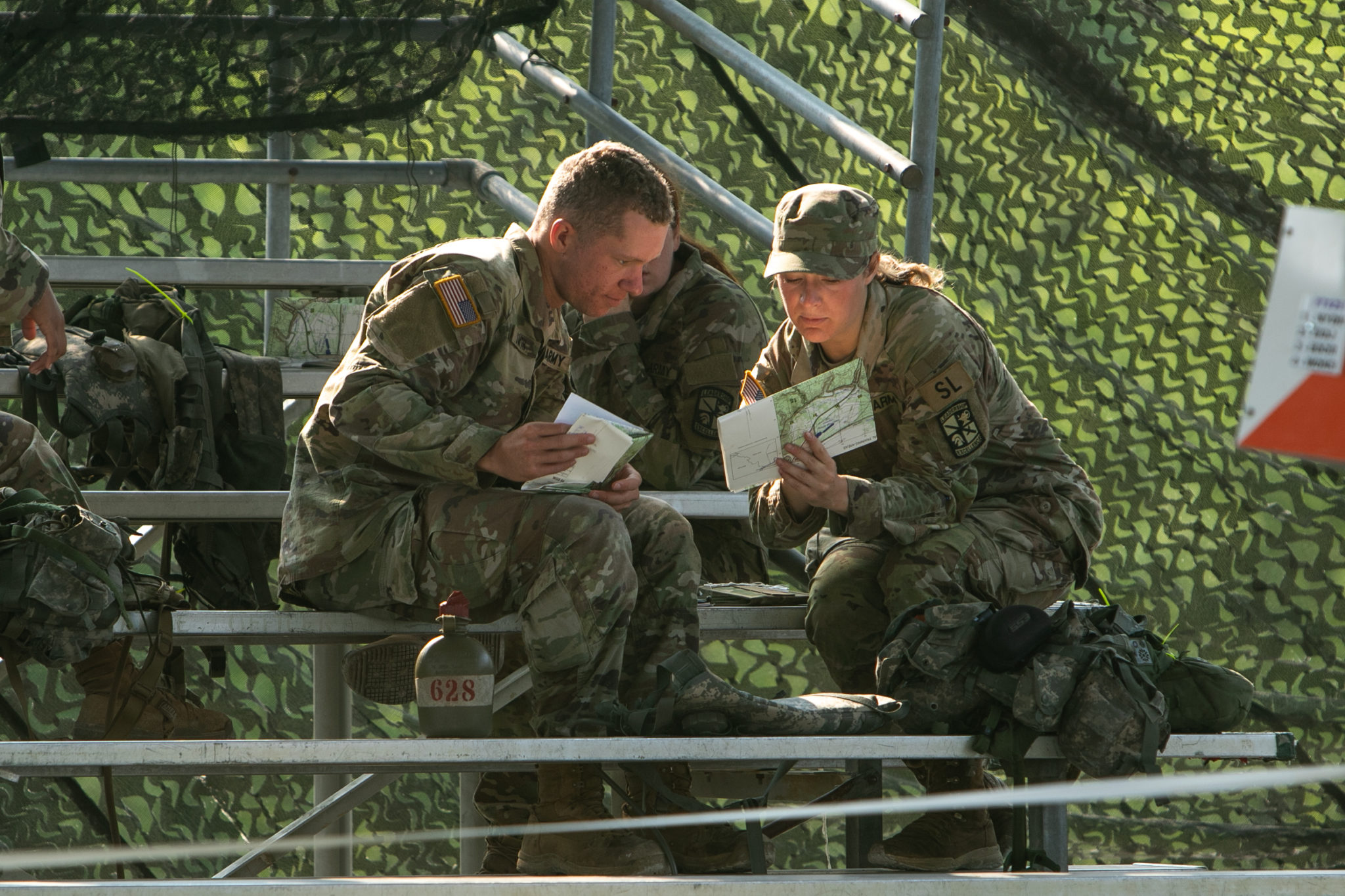FORT KNOX, Ky. – 3rd Regiment, Advanced Camp, Cadets continued their field training exercise at Fort Knox, Kentucky July 6, 2018.
The Cadets participated in an ambush field exercise. The goal of the platoon was to prevent the enemy from resupplying, while obtaining any information possible.
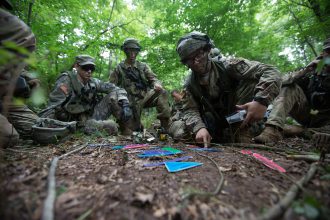
3rd Regiment, Advanced Camp, Cadets participate in their FTX at Fort Knox, Ky. July 6, 2018. Photo by Dustin Massengill.
Cadet Joshua Tribble, South Carolina State University, says the tactical skills are important, but what the Cadre are really looking for are your inner qualities during these exercises.
“Our best qualities and our worst qualities are going to come out,” he said. “People that can deal with the pressure and people that can’t deal with the pressure.”
The platoon held a point near the ambush location for about 2 hours before executing the mission.The assault squad leader pushed to set up a security element at the planned point of contact, he expected a full squad of enemies. Cadet Gery Fabrega, from George Mason University said his role as a squad leader taught him a lot about working laterally and vertically with the others.
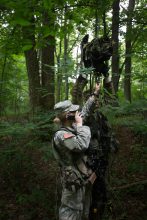
3rd Regiment, Advanced Camp, Cadets participate in their FTX at Fort Knox, Ky. July 6, 2018. Photo by Dustin Massengill.
“I need to work with my troops on an eye-to-eye level, where the platoon leader just gives orders, the squad leader needs to give orders and work with each individual person.”
After camouflaging their rucks the platoon began finalizing their plan, creating a diagram of the battlefield in a clear spot in the dirt. Each squad took a turn using the diagram to understand their role in the ambush. After the platoon had finished planning they hiked through the woods to the combat zone.
The squads took to the zones they would man during the ambush, while a Cadet planted the mortar that would start the ambush once the enemy arrived.
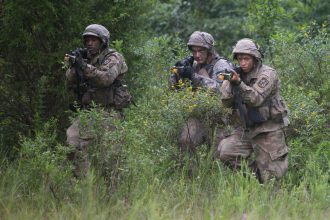
3rd Regiment, Advanced Camp, Cadets participate in their FTX at Fort Knox, Ky. July 6, 2018. Photo by Dustin Massengill.
After 20 minutes, the enemy force began walking though the area. With only four enemies spotted, the Cadets remained calm and held their fire until after the enemy squad was centered in the combat zone.
“Mortar, Mortar, Mortar,” screamed a Cadet, signaling the explosive. Two large booms erupted and a firefight broke out. Lasting roughly 15 minutes, the Cadets quickly eliminated the four targets, taking one as a prisoner of war.
The Cadets first checked for friendly casualties. With no friendlies hurt they quickly tended to the wounded war-prisoner and checked the other bodies for casualties.
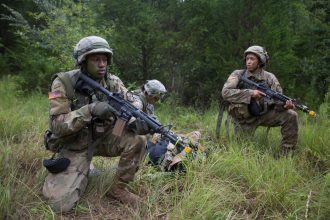
3rd Regiment, Advanced Camp, Cadets participate in their FTX at Fort Knox, Ky. July 6, 2018. Photo by Dustin Massengill.
Sgt. 1st Class Tiffany Abram, who has followed these Cadets through all of their field training exercises says she has seen them growing.
“They have grown exponentially within the last seven or eight days they have been doing tactical missions,” she said. “They have grown as a group, they have learned each other’s strengths and weaknesses, and they have developed standard operation procedures for their platoon.”
This assignment required a large amount of security, which Cadets struggle with. Remaining focused, still and awake for a long period of time. The platoon sergeant for this group of cadets recommends checking on each other and trying to break the long security periods into small chunks.

